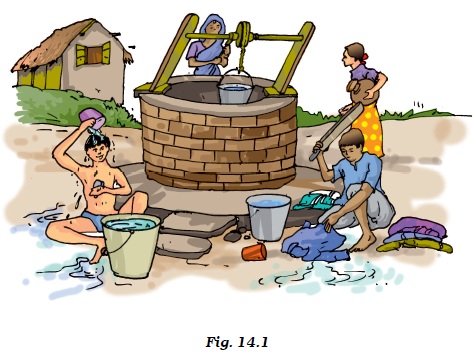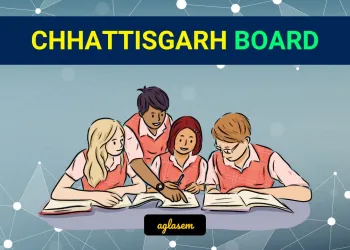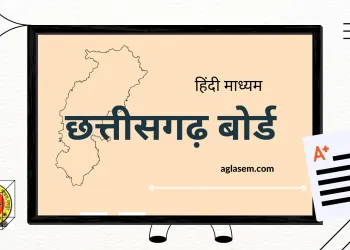Class 6 Important Questions for Science – Water
NCERT Exemplar Class 6 Science is very important resource for students preparing for VI Board Examination. Here we have provided NCERT Exemplar Problems Solutions along with NCERT Exemplar Problems Class 6.
Question from very important topics are covered by NCERT Exemplar Class 6. You also get idea about the type of questions and method to answer in your Class 6th examination.
Here you can get Class 6 Important Questions Science based on NCERT Text book for Class VI. Science Class 6 Important Questions are very helpful to score high marks in board exams. Here we have covered Important Questions on Water for Class 6 Science subject.
Science Important Questions Class 6 are given below.
Multiple Choice Questions
- Which of the following activity does not involve use of water?
- (a) Washing clothes
- (b) Bathing
- (c) Cleaning utensils
- (d) Drying wet clothes
- In which of the following activities will you use minimum amount of water?
- (a) Bathing
- (b) Brushing teeth
- (c) Washing clothes
- (d) Mopping a room
- The quantity of water required to produce one page of your book is
- (a) one bucket
- (b) ten buckets
- (c) two glasses
- (d) few drops
- Water in our tap comes from a
- (a) river
- (b) lake
- (c) well
- (d) river, lake or well
- In which of the following case evaporation of water will be slowest?
- (a) A tray of water kept in sunlight.
- (b) A kettle of water kept on a burner.
- (c) A glass of water kept in a room.
- (d) A bucket of water kept on rooftop.
- Transpiration is a process in which plants
- (a) receive water from soil.
- (b) absorb water vapour from air.
- (c) prepare food from water.
- (d) release water vapour.
- Clouds are
- (a) tiny drops of water floating in air.
- (b) mixture of dust and water vapour.
- (c) particles of water vapour.
- (d) rain drops in air.
- Wells are fed by
- (a) pond water.
- (b) lake water.
- (c) rain water.
- (d) ground water.
- Floods cause extensive damage to
- (a) crops.
- (b) property and human life.
- (c) domestic animals.
- (d) all of the above.
- “Catch water where it falls” is the basic idea behind
- (a) recycling of water.
- (b) making dams to store water.
- (c) rain water harvesting.
- (d) condensation of water vapour.
Very Short Answer Type Questions
- Look at Fig. 14.1.

Write down activities shown in this figure in which water is being used. - Write any two activities which require more than a bucket of water.
- Write any two activities which require less than one bucket of water.
Short Answer Type Questions
- Why do wet clothes placed on a clothes line get dry after some time? Explain.
- Water kept in sunlight gets heat from sun and is evaporated. But how does water kept under the shade of a tree also gets evaporated? Explain.
- How do the areas covered with concrete affect the availability of ground water?
- Why is there a need for conserving water? Give two reasons.
- Fill in the blanks selecting words from the following list snow, rain, clouds, vapour, evaporation, transpiration.
Water, as _____ goes into atmosphere by the processes of ______ and _____ and forms ________, which on condensation fall in the form of ______ and _______.
Long Answer Type Questions
- Most of the water that falls on the land as rain and snow, sooner or later goes back to a sea or an ocean. Explain how it happens?
- Draw a diagram to show how sea water reaches a lake or pond.
- Dissolve two spoons of common salt in half a cup of water. Now if you want to get the salt back, what will you do?
- Explain the process of rooftop rain water harvesting with the help of a suitable diagram.
| « Previous | Next » |
Answers to Multiple Choice Questions
| 1. (d) | 2. (b) | 3. (c) | 4. (d) |
| 5. (c) | 6. (d) | 7. (a) | 8. (d) |
| 9. (d) | 10. (c) |
Class 6 Important Questions for Science all topics
Science Important Questions Class 6 are given below chapter wise.
- Food : Where Does it Come From ?
- Components of Food
- Fibre to Fabric
- Sorting Materials and Groups
- Separation of Substances
- Changes Around Us
- Getting to Know Plants
- Body Movement
- The Living Organisms and their Surroundings
- Motion and Measurement of Distances
- Light
- Electricity and Circuits
- Fun with Magnets
- Water
- Air Around Us
- Garbage In, Garbage Out
Other Study Material
To get study material, exam alerts and news, join our Whatsapp Channel.


